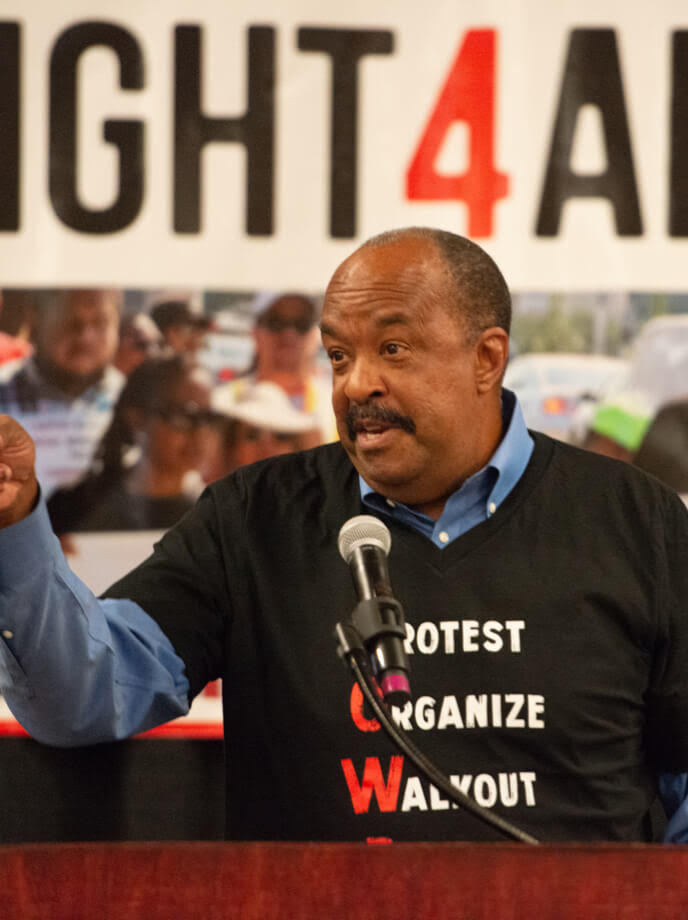
By Edward Henderson, California Black Media
The California Endowment’s (TCE) mission is to expand access to affordable, high-quality health care for underserved individuals and communities, and to promote fundamental improvements in the health status of all Californians.
Since the organization’s establishment in 1996, TCE has awarded more than 22,000 grants amounting to over $2.9 billion to community-based organizations across California, making it the largest private health foundation in the state.
TCE provides funding to 501(c)(3) nonprofit organizations that are not private foundations, California state and local government entities, and faith-based organizations that welcome and serve all state residents.
According to TCE, in many parts of the country, including California, a person living in an affluent neighborhood can expect to live 15 years longer than someone living in a low-income underinvested neighborhood, sometimes just a few blocks away.

Many of these underserved places, due to the legacy of racial and economic segregation, lack basic health-protective amenities such as parks, grocery stores, good schools, jobs, and housing.
TCE empowers organizations in California to change this reality, with the belief that race, geographic location, gender nor sexual orientation should not limit access to a healthy life. The Endowment also hosts events and programs to build unity and amplify voices in the community for social change.
California Black Media (CBM) spoke with Castle Redmond, Managing Director of TCE about the organization’s impact, challenges and achievements over the last year.
What does your organization do to improve the lives of Black people in California?
We fund organizations doing work within our strategic focus areas. We Many of them work on behalf of Black people and the community, not exclusively, but it’s a big part of what we want to accomplish in California.
What was your greatest success over the course of the last year?
We focus on public education. We’re trying to transform the public education system in California by supporting organizations that are doing the work to transform it. Over the last year, some of the best work we did is funding community groups supporting mental health in the school system. For example, The Alliance for Boys and Men of Color is an organization we support to ensure that funding gets to schools that have high numbers of Black students.
In your view, what is the biggest challenge Black Californians face?
There are a host of challenges that are systemic and not new. Structural racism and inequities hit the same folks who were hit hardest by slavery, indigenous genocide, by Jim Crow, northern and western segregation, redlining, and the rest. The same folks are hit with structural racism now. In California, Black people are, by far, the most affected by homelessness. It’s the same with incarceration and gun violence. The backlash from structural racism is landing on us. The aftermath of COVID – the deathrates and lockdowns — with schools being closed for the longest, we’re still reeling and trying to recover from that. Lastly, our schools in the districts that serve large numbers of Black students are being hit by a fiscal crisis. All of that stems from structural inequities.
What was your organization’s biggest challenge?
We are a highly committed organization. We are explicit about transforming structural inequity. The biggest challenge is figuring out exactly how to move from strategy to implementation. Figuring out those levers that will have the greatest impact. This problem is amplified because everyone is adjusting because of the changes that have taken place since COVID. The conditions have shifted, the landscape has shifted, and for us to navigate that is a challenge.
Does your organization support or plan to get involved in the push for reparations in California?
We support our grantees. We don’t take the lead, but we support organizations that are pushing for reparations. One of these organizations is the California Black Freedom Fund. We are finishing up our giving of a $10 million grant to the Fund and they are supporting reparations. In the future, if there is an opportunity for us to play an appropriate role for a foundation, we’re exploring what that might be.
How can more Californians of all backgrounds get involved in the work you are doing?
Join local community organizing efforts that are led by and for Black people in your community or surrounding communities. They can also give to the Black Freedom Fund. That would be the number one funding organization to look to.



